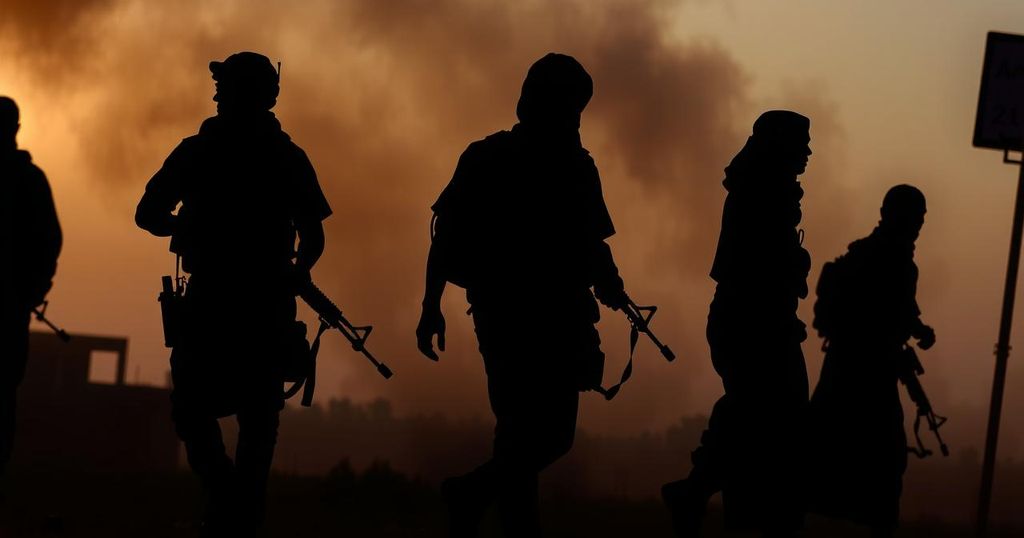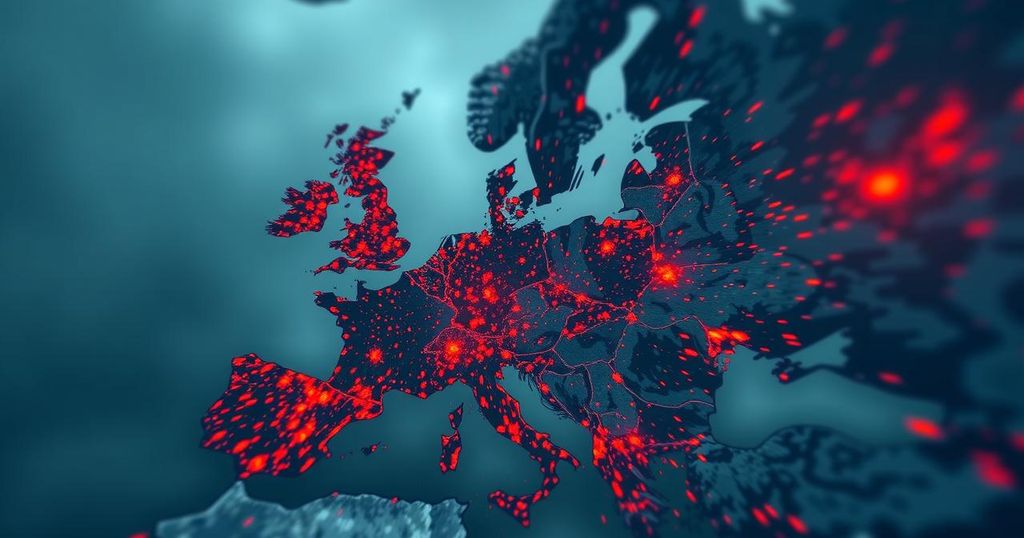Jihadist Attacks in Bamako: A Turning Point for Malian Security
A series of jihadist attacks in Bamako resulted in over 70 deaths and 200 injuries, challenging claims from the Malian junta about its counter-terrorism successes. The Group for the Support of Islam and Muslims (GSIM) claimed responsibility, indicating significant casualties among the military. Following the attacks, there was an outcry for accountability from the public, while authorities responded by closing several markets. International leaders condemned the violence, emphasizing the urgent need for effective security measures within urban areas.
On Tuesday, a series of jihadist attacks in Bamako resulted in over 70 fatalities and 200 injuries, marking one of the most severe human tolls in recent history for the Malian security forces. These figures challenge the assertions made by the military junta, which has governed since 2020 and claimed success in its counter-terrorism efforts through increased military action and new foreign partnerships. Following the assaults on the gendarmerie school and the military airport, many Malian citizens have taken to social media to demand accountability, citing this as a significant security failure. Official reports indicate 77 confirmed deaths and 255 injuries, though confidential documents suggest the actual toll may be higher, estimating up to 100 deceased, with specific names provided for 81 victims. In response, the Malian military acknowledged “some loss of human life,” particularly among trainee gendarmes, while reports emerged indicating a much higher casualty rate. The Group for the Support of Islam and Muslims (GSIM) claimed responsibility for the attacks, stating their actions resulted in hundreds of deaths and injuries on the opposing side, including combatants of the Russian Wagner group, which has allied with the military government. In the aftermath, a private funeral service was held in Bamako, while authorities reacted by closing seven livestock markets, positing the potential the jihadists may have utilized these spaces as hideouts prior to the attack. Such coordinated strikes had not been witnessed in Bamako since 2016, with the capital experiencing a relative reprieve while other areas of the nation have suffered near-daily assaults. This incident coincided tragically with the first anniversary of the Sahel States Alliance, a coalition among Mali, Burkina Faso, and Niger aimed at countering jihadist violence. The attacks triggered widespread condemnation from various international leaders, including UN Secretary-General Antonio Guterres and African Union Commission Chairperson Moussa Faki Mahamat. Jean-Hervé Jezequel, head of the Sahel project at the International Crisis Group, noted that the scale of this assault was remarkable, particularly as it struck vital government institutions at the heart of Bamako. Jezequel speculated that jihadists might be signaling to the Malian authorities their ability to execute attacks in urban centers, emphasizing the need to strengthen security in major cities.
The recent surge of violence in Mali reflects the ongoing struggles the nation faces with jihadist groups, particularly since the military junta took control in 2020 following a series of coups. Historically, Mali has experienced instability and increasing jihadist attacks, leading to a deteriorating security situation. The junta has pursued new partnerships, particularly with Russia, while distancing itself from former colonial powers, aiming to reestablish control and combat the extremist threat. However, the severity of the attacks in Bamako raises critical questions about the effectiveness of this strategy and the overall security landscape in the country.
The jihadist attacks in Bamako have illuminated significant concerns regarding the Malian government’s ability to secure its capital and protect its citizens. The resultant high casualty figures, coupled with the junta’s previous assertions of improved security, underscore a discrepancy that has ignited public demand for accountability and strategic reassessment. Furthermore, the international responses highlight a crucial moment for Mali as it navigates both its internal security dilemmas and external diplomatic relations amidst growing jihadist threats.
Original Source: actualnewsmagazine.com








Post Comment